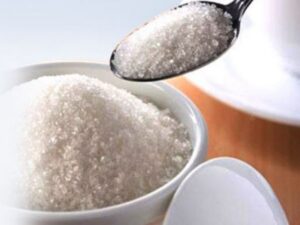Industrial material prices fall sharply on concerns about Chinese slowdown
Tokyo [Japan], April 30 (ANI): Prices for industrial materials such as ferrous and nonferrous metals are plummeting, with steel marking a five-year low as concerns grow about a slowing Chinese economy and a resulting supply glut, reported Nikkei Asia.
Prices had been on the rise since the end of last year in anticipation of an economic recovery after China abandoned its zero-Covid policy, but there is mounting concern that growth there is slowing, according to Nikkei Asia. Compounding this are worries that Chinese producers with excess supply will ramp up exports, depressing prices globally.
Hot rolled coils listed on the Shanghai Commodity Futures Exchange hit a five-month low of 3,928 yuan (USD 568) per tonne on Wednesday. Hot-rolled thin steel plate is essential for the production of building components and industrial machinery, serving as the benchmark for steel prices in China. The price decline indicates a deterioration in the local steel market, reported Nikkei Asia.
Prices for nonferrous metals and chemical products are also sinking. The international zinc index is 20 per cent lower than the year’s high in late January. Aluminium prices are down 10 per cent from mid-January highs, Nikkei Asia said, adding that Asian prices for vinyl chloride, which is used as a construction material, are also 6 per cent off highs.
Expecting a rebound in economic activity after China’s strict Covid lockdowns were lifted, upstream basic material producers have been ramping up production. China’s iron ore imports in the January-March quarter increased by about 10 per cent on the year to 294.34 million tonne, a record high for that period. Crude steel production in China also increased 6 per cent to 261.6 million tonne, according to Nikkei Asia.
But capacity utilisation in manufacturing and other sectors in the quarter was 74.5 per cent, 1.3 percentage points lower than for all last year, according to China’s National Bureau of Statistics. Although real gross domestic product showed an increase of 4.5 per cent on the year, stronger than market expectations of 4 per cent, the recovery in consumer durables and other goods has not been as robust as expected.
Nikkei Asia said construction, which accounts for the majority of steel demand, was also weak, with real estate development investment in the quarter falling 5.8 per cent on the year.
Expectations for increased demand for industrial materials were further dampened by the failure of the National People’s Congress in March to come up with a major real estate stimulus package. China’s crude steel production minus steel consumption in January-March was about 27.14 million tonne in surplus, the highest level in two years, according to the Marubeni Research Institute.
“The oversupply of steel is putting downward pressure on prices,” noted the institute’s senior analyst Li Xuelian.
That excess steel is heading out of the country, Nikkei Asia said. China’s steel exports for the January-March quarter totalled more than 20 million tonne, up 50 per cent on the year.
The increase in inexpensive Chinese steel could hurt steelmakers in other countries. Nearly 20 cargo ships loaded with Chinese steel products are staying offshore off the Japanese port of Funabashi.






